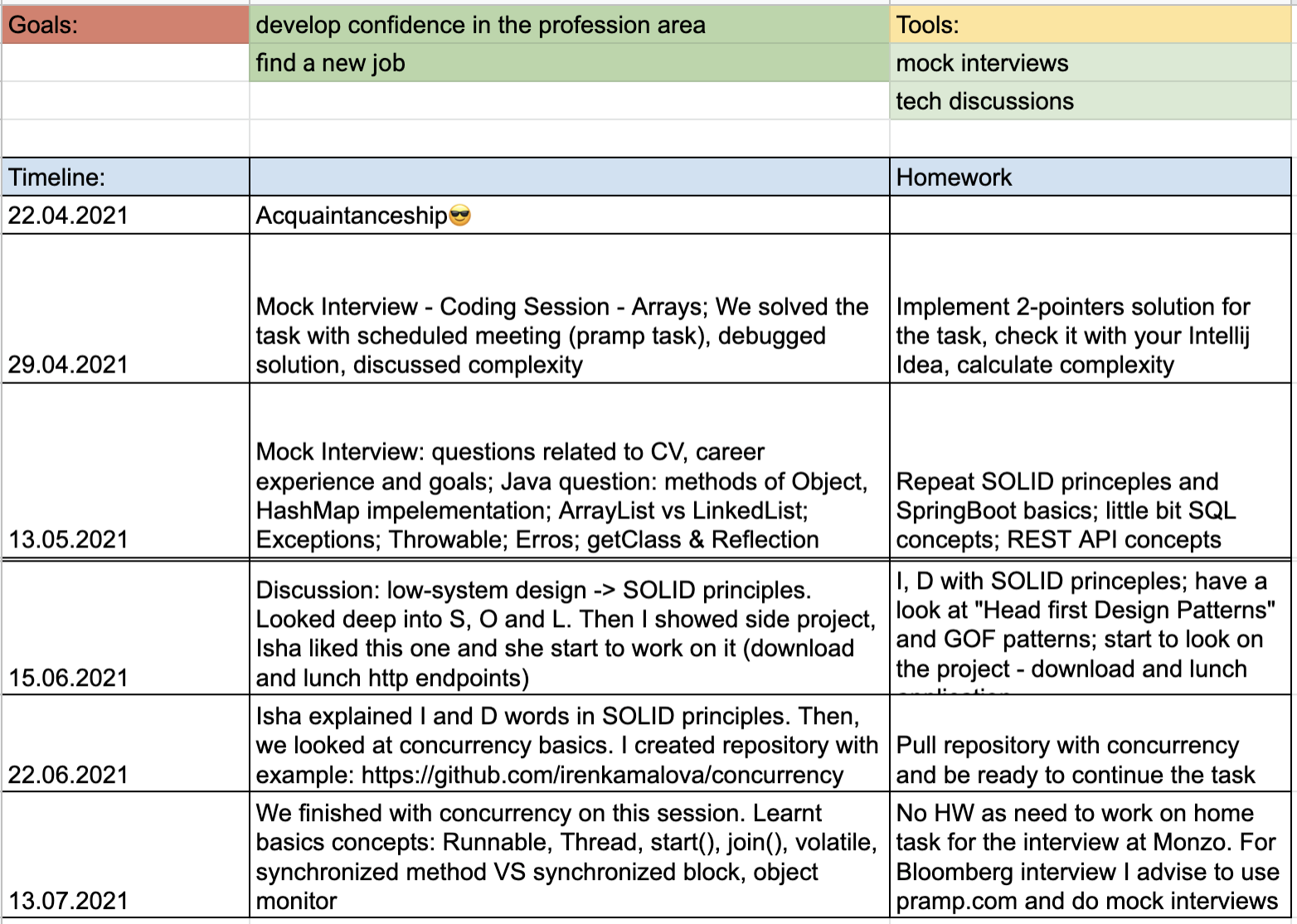WWCode London Members Offer Mentorship Tips
Written by WWC Team
 In Women Who Code London we believe that mentoring is important! Previously, we have shared with you the article behind WWCode London's mentorship programme, today we want to share some actionable tips and tricks on how to make the most out of it.
In Women Who Code London we believe that mentoring is important! Previously, we have shared with you the article behind WWCode London's mentorship programme, today we want to share some actionable tips and tricks on how to make the most out of it.
Mentee’s story
At the beginning of this year, while browsing through my LinkedIn feed, I saw an amazing opportunity of seeking mentorship through the Women Who Code Mentorship programme. Being a woman in tech can sometimes feel daunting when you have to bring your ideas and suggestions to the table full of mostly men. So, the moment I saw this program’s information I became excited to enroll to this, to be able to discuss my questions with another female engineer without hesitation and to gain more confidence.
The outcome of the program turned out very positive for me and my mentor as we would have regular sessions and mock interviews and several Java-related discussions and we both managed to secure new job roles.
I have curated a few tips, stated below, for the mentees:
-
Decide the theme and goals for your mentorship
In the introductory or initial sessions try to decide the theme and goal of the mentorship, i.e. what exactly do you want to gain and achieve from this programme. To name a few – is it related to soft skills (like building up confidence etc.) or technical skills or help with interviews/job search.
-
Be proactive
Try to proactively organize or set up the upcoming sessions instead of waiting for your mentor to do it. Also, try to seek regular feedback on how things are going, like a mini-retrospective session to help you improve in the next sessions. Try to share or practice your newly achieved knowledge from these sessions with your friends and colleagues. For e.g. as my goal was to switch to a new job role, I would learn things from my mentor but later on, also have mock interviews and discussion sessions with a friend.
-
Be cautious of your mentor’s time
The mentors are volunteers and are trying to help you besides their main jobs, so be wary of their time, cancel or reschedule sessions in advance if you can no longer attend the upcoming session. You could also outline what you want to discuss in the next session such that you and your mentor both can go through it a bit and then have a healthy conversation in the session.
-
Set up metrics for evaluation.
Last but not the least, try to come up with metrics for evaluation of the outcome from the programme. This would give you a sense of confidence that you became successful when you achieve it.
That’s all for now, hope you make the most out of these sessions, happy seeking mentoring, best of luck!
Mentor’s story
I was seeking a good mentorship programme to apply as a mentor. I had some experience as a teacher of Java language, as an instructor for SQL course and had some private classes with beginners. I wondered how to find a mentee who has already some experience and wants to grow from beginner level to the mid one. I am so happy that WWCodeLondon gave me this opportunity! Relying on my teaching experience and organisation skills, I developed several practices which allow me to make a great performance on our progress with my mentee!
Here are my tips for a mentor:
-
Define goals and metrics. Define tools to achieve the result.
Examples of goals:
-
grow confidence
-
develop new skills
-
find a better job
-
obtain a promotion
-
…
Examples of tools:
-
coding sessions
-
coding practices on special platforms (HackerRank, LeetCode)
-
free online courses
-
mock interviews
-
courses with certification
-
pet projects
-
practicing stressful situations
-
…
-
Accurate tracking of the process.
Put everything in documents and manage the “diary of your collaboration”.
The example of our diary is below:

I managed it in spreadsheet lists. I see it as a helpful instrument for any long-term activities. Please, don't try to keep in memory details, homework and results of your progress with your mentee. Just put everything in one place!
-
Push your mentee. Being a software engineer is hard. And it’s easy to give up. But with a mentor who takes in the right place, the mentee can achieve great results. If a mentee doesn't have enough resources for learning and preparing themselves for the following session then it's better to reveal it and let them take their time until future programmes. But if they can give you results, you both will be rewarded!
-
Be flexible. What to do if your mentee asks to do something different beyond the plan for the next session? Then you can accept the request without any doubt. It’s good if they know exactly what they need right now. Continue to keep logging on what you’ve done in every session. It allows you to see what worked precisely for them.
-
Do some research on their requests. The cool thing about working with mentees is the fact they can bring the question you’ve never thought of before. So you can learn new things with them while you try to find the answer!
I hope all these tips inspired you to apply as a mentee. Remember: it’s never too early to become a mentor!